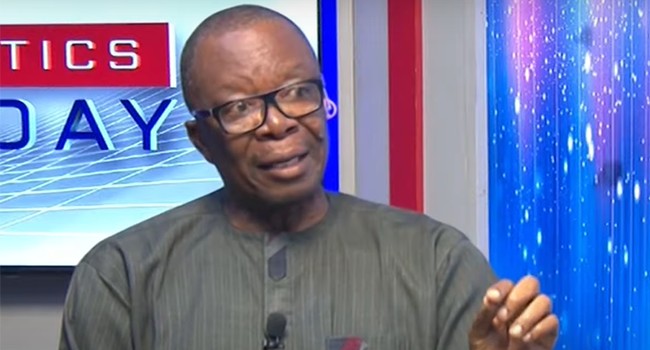Nigerian educators have lamented that the meagre salaries of professors and lecturers have crippled the standard of education in the country.
In separate interviews with our correspondent, they decried the poor welfare and remuneration in the nation’s tertiary institutions, describing it as the major force driving a massive brain drain, with gifted academics fleeing for better-paying opportunities abroad.
They warned that this continuous exodus is draining universities of experienced minds, lowering morale, weakening commitment, and steadily eroding the overall quality of teaching and research in Nigeria’s higher education system.
“Ultimately, this negatively impacts the Nigerian higher education system and the country’s development. Many of Nigeria’s best graduates and experienced lecturers are leaving the country for better pay and conditions abroad,” they said.
New National Star reports that, for over three decades, welfare and salaries of Nigerian lecturers have raised dust and controversies. An improved welfare is one of the top requests of the Academic Staff Union of Universities (ASUU).
The effect of the reduced workforce, however, could lead to a lack of experienced staff, forcing some departments to merge or close, and creating a situation where remaining lecturers are overburdened with large class sizes, resulting in a decline in the quality of education.
While speaking on the frustration of Nigerian lecturers, the ASUU Chairman, University of Abuja, Dr. Sylvester Oguh, during an interview, accused the Federal Government of not being sincere in meeting tertiary institutions workers’ demands.
Oguh expressed disappointment that instead of the Federal Government implementing all the agreements in the collective bargaining reached, it is rather threatening tertiary institution workers with the ‘No Work, No Pay’ policy.
Disclosing that some Nigerian professors earn between N350,000 to N360,000, the chairman said the low salary could promote apathy for work, less commitment, and low output.
“It is unfortunate that instead of trying to solve the problem, the Education Minister is busy threatening ASUU with No Work, No Pay. We are not in a state of anarchy. We expect that having come to a point where we have a collective bargain, we should focus on that, not giving threats to lecturers and professors whose salaries rarely carry them for one week. The lecturers who live on the charity of friends and relatives. Imagine a professor you are paying on that value of N350,000 to N360,000 salary, definitely, this amount cannot take them for 30 days,” he said.
Though many lecturers who spoke during the filing of this story could not disclose the specific amount lecturers and professors in their various institutions are earning, a retired director from the Ministry of Education, Mr. Ben Gnoog, who is also a former Governing Council member of Imo State University (IMSU), said salaries for lecturers in Nigeria vary significantly based on rank, with entry-level positions like Graduate Assistants earning between N125,000 and N138,020 per month, while professors can earn between N525,010 and N633,333. Senior Lecturers typically earn a monthly salary between N386,101 and N480,780. These figures are based on the Consolidated University Academic Salary Structure (CONUASS) and can be impacted by allowances and other factors.
Listing the ranges of monthly salary by rank, he said:
Graduate Assistant: N125,000 – N138,020, Assistant Lecturer: N150,000 – N171,487, Lecturer II: N186,543 – N209,693, Lecturer I: N239,292 – N281,956, Senior Lecturer: N386,101 – N480,780, Reader (Associate Professor): N436,392 – N522,212, Professor: N525,010 – N633,333.
For allowances, some roles include additional allowances for housing, transport, and research, which can increase total monthly income.
It was gathered that lecturers in Nigerian private universities earn higher than those in the federal and state universities.
During the period of filing this story, all efforts made to establish the fact about how much lecturers in private universities are being paid failed, as most of the lecturers did not respond.
Meanwhile, Gnoog, who perceived the agitations of lecturers for increased salary differently, said ASUU, like other trade or labour unions, should abide by the principle of civil service, without considering their services and pay more important than other civil servants who are in the same cadre with them.
“They are living in Nigeria, not in a different country, and the question is, what is the salary structure of Nigeria? What are their mates in the civil service receiving? What is the salary of primary and secondary school teachers? Lecturers should be fair to Nigerians,” said Gnoog.
For international comparisons, recent reports indicate that Nigerian lecturers, even professors, are among the lowest-paid in Africa compared to their counterparts in other countries.
A recent report showed professors’ annual salaries in some African countries, including Nigeria, as follows:
South Africa — $57,471/year (N86,206,500 at N1,500 per dollar), Uganda — $50,595 (N75,892,500), Kenya — $48,000 (N72,000,000), Eswatini — $41,389 (N62,083,500), Lesotho — $32,455 (N48,682,500), Gabon — $29,907 (N44,860,500), Sierra Leone — $18,000 (N27,000,000), Zambia — $14,948 (N22,422,000), Comoros — $12,960 (N19,440,000), Namibia — $23,922 (N35,883,000), Botswana — $19,935 (N29,902,500), Angola — $15,948 (N23,922,000), Seychelles — $13,950 (N20,925,000), Ghana — $12,960 (N19,440,000), Mauritius — $12,411 (N18,616,500), Malawi — $12,366 (N18,549,000), Zimbabwe — $6,578 (N9,867,000), Nigeria — $4,400 (N6,600,000).
Speaking also, Mr. Robert Eze, a media consultant, urged the Nigerian government to consider the services professors render, saying that the teaching profession should be appreciated like in other countries.
“Nigeria should invest hugely in the education sector because education drives economic development,” said Eze.

